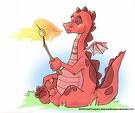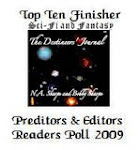


The roots of magic come from the Celts, a people living between 700 BC and 100 AD. Believed to be descendants of Indo-Europeans, the Celts were a brilliant and dynamic people – gifted artists, musicians, storytellers, metalworkers, expert farmers and fierce warriors. They were much feared by their adversaries, the Romans, who eventually adopted a number of their customs and traditions.
The Celts were a deeply spiritual people, who worshiped both a god and goddess. Their religion was pantheistic, meaning they worshiped many aspects of the "One Creative Life Source" and honored the presence of the "Divine Creator" in all of nature. Like many tribes the world over, they believed in reincarnation. After death, they went to the Summerland for rest and renewal while awaiting rebirth.
The months of the Celtic year were named after trees. The Celtic new year began at Samhain, which means "summers end," and was the final harvest of the year. This was also their "Festival of the Dead," where they honored their ancestors and deceased loved ones. Many contemporary Halloween customs come from Samhain.
Next on the wheel of the Celtic year was the Winter Solstice, celebrating the annual rebirth of the Sun. Our Christmas customs today are similar to this ancient celebration. Around the beginning of February came Imbolg, a time when domesticated animals began to give birth. The Spring Equinox and Beltaine, sometimes called "May Day," were fertility festivals. The Summer Solstice, known as Lughnassa, celebrated the glory of the Sun and the powers of nature. Lughnassa, the Fall Equinox, and Samhain, were considered as Celtic harvest festivals.
The "Druids" were the priests of the Celtic religion. They remained in power through the fourth century AD, three centuries after the Celts' defeat at the hands of the Romans. The Druids were priests, teachers, judges, astrologers, healers and bards. They became indispensable to the political leaders, giving them considerable power and influence. They were peacemakers, and were able to pass from one warring tribe to another unharmed. It took twenty years of intense study to become a Druid.
Translated, the word Druid means "knowing the oak tree." Trees, the oak in particular, were held sacred by the Celts. Mistletoe, which grows as a parasite on oak trees, was a powerful herb used in their ceremonies and for healing. Mistletoe was ritually harvested at the Summer Solstice by cutting it with a golden sickle and catching it with a white cloth while never letting it fall to the ground.
The religious beliefs and practices of the Celts grew into what later became known as Paganism, not to be confused with the term Neo-Paganism, which is beyond the scope of this writing. The word Pagan is derived from the Latin word Paganus, meaning "country dweller." This outgrowth was consistent with the Celts' love for the land and their holding such things as the oak tree and mistletoe sacred.
Paganistic beliefs and rituals blended with those of other Indo-European descended groups, and over several centuries spawned such practices as concocting potions and ointments, casting spells, and performing works of magic.
Want to read more about magical history? Check out the Cybrarie and Professor Stromber's post on Ancient Egyptian Magic. It's in the Spellings classroom!
Like this post? Tweet it! Go ahead, you know you want to! 
We just want to help you
3 months ago


























6 comments:
Hi Karen - welcome back! I am so jealous of your trip - hope you had a wonderful time! I would love to go on a trip like that - I enjoy Celtic history so much.
Nancy
This was very interesting. There should be more teaching about this in college.
Helen
Straight From Hel
Gosh, Nancy, that’s a lot of detailed information. Did you research all of that for this post, or, did you already know most of it, and sort of put it together in a way neophytes could understand? Either way, good job. Thank you.
Best Regards, Galen
Imagineering Fiction Blog
This is subject and area of study that fascinates me - Celts, mysticism, and paganism. Really enjoyed this post and your input on it.
The Old Silly
I love the Celtic history and mysticism. Great post, Nancy!
Elizabeth
Mystery Writing is Murder
Hi everyone! Actually I've been doing research into Celtic lore for one of the Destineers storylines (grin)
Thank you all so much for stopping by!
Nancy
Post a Comment